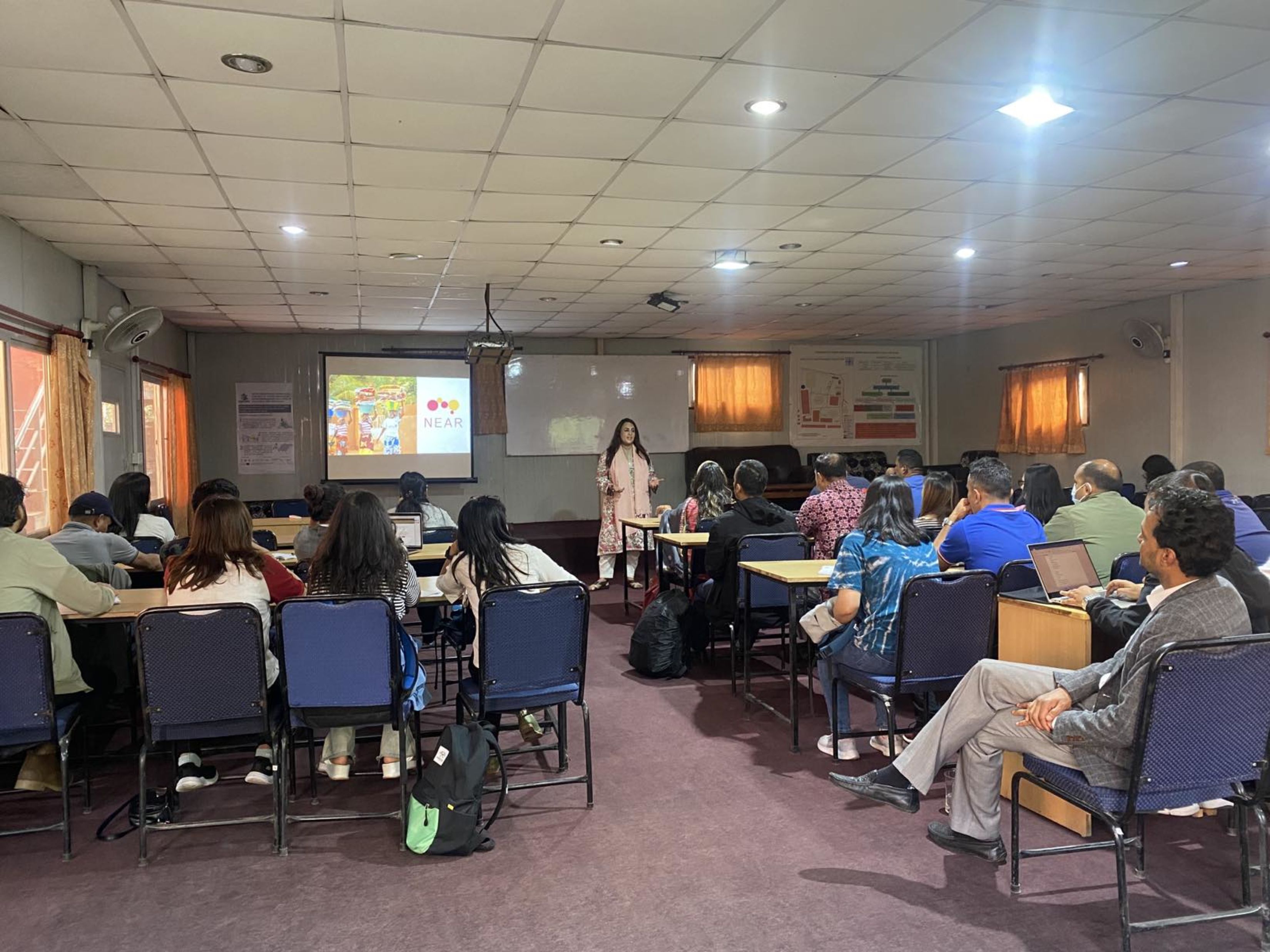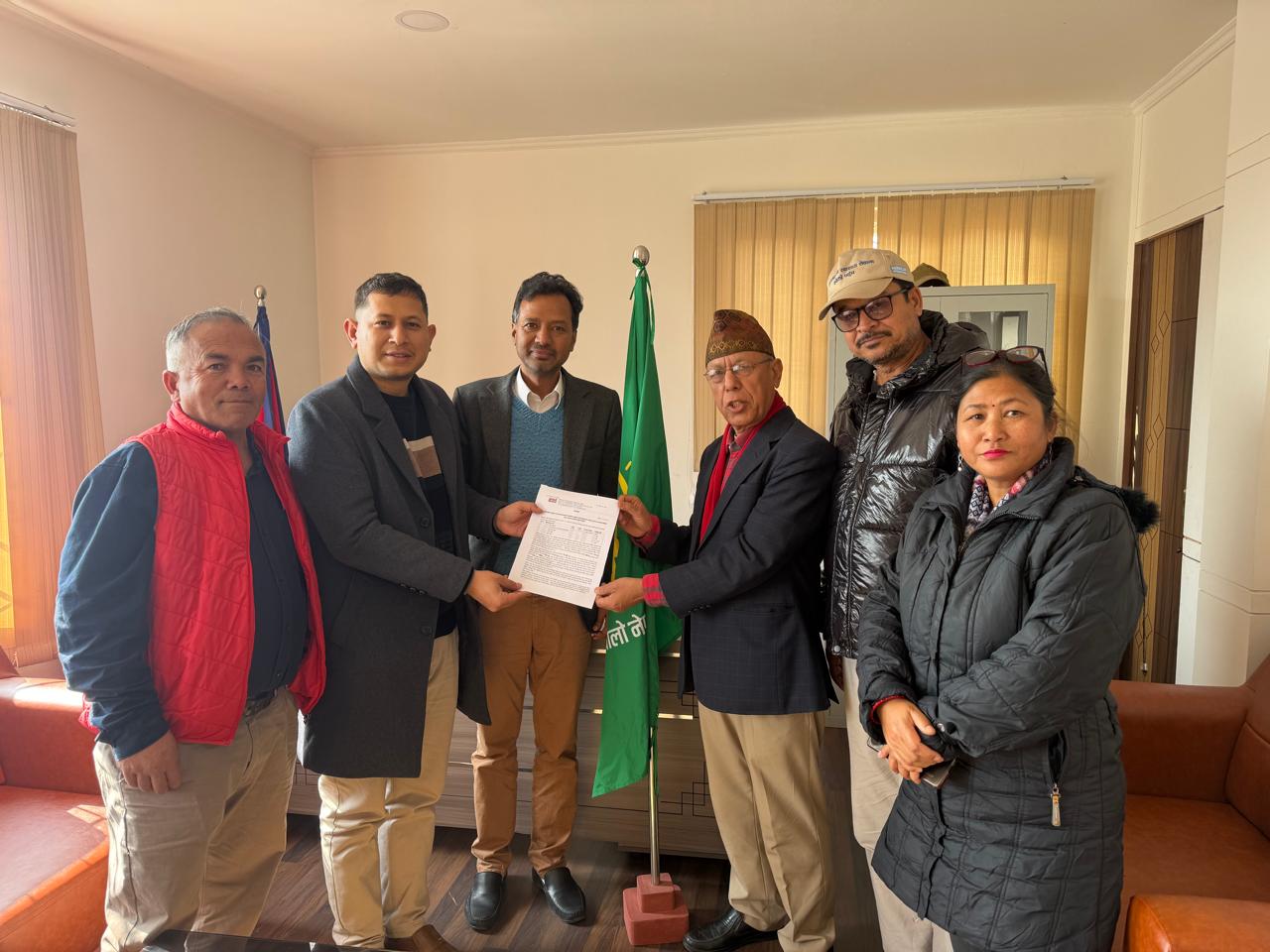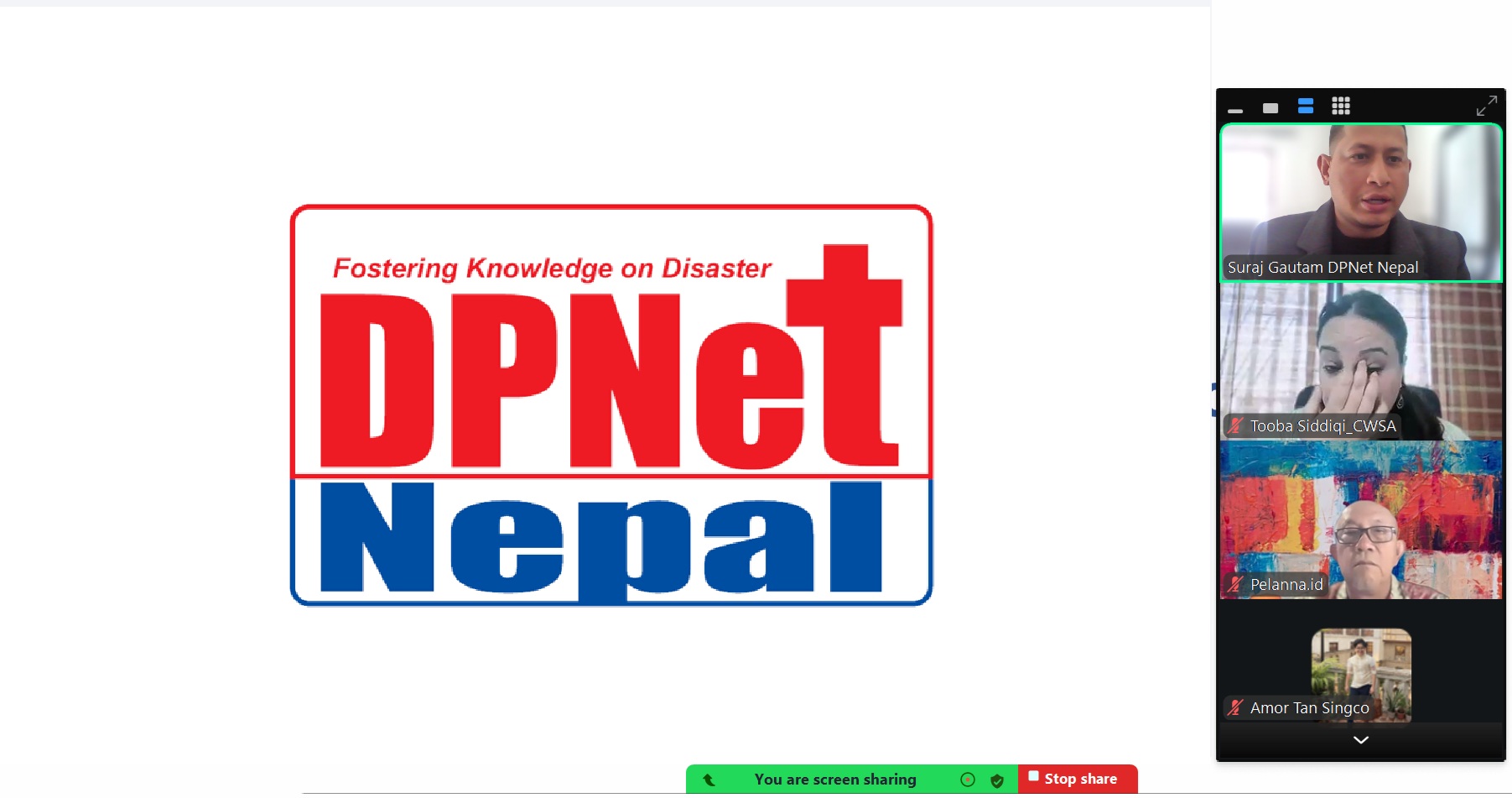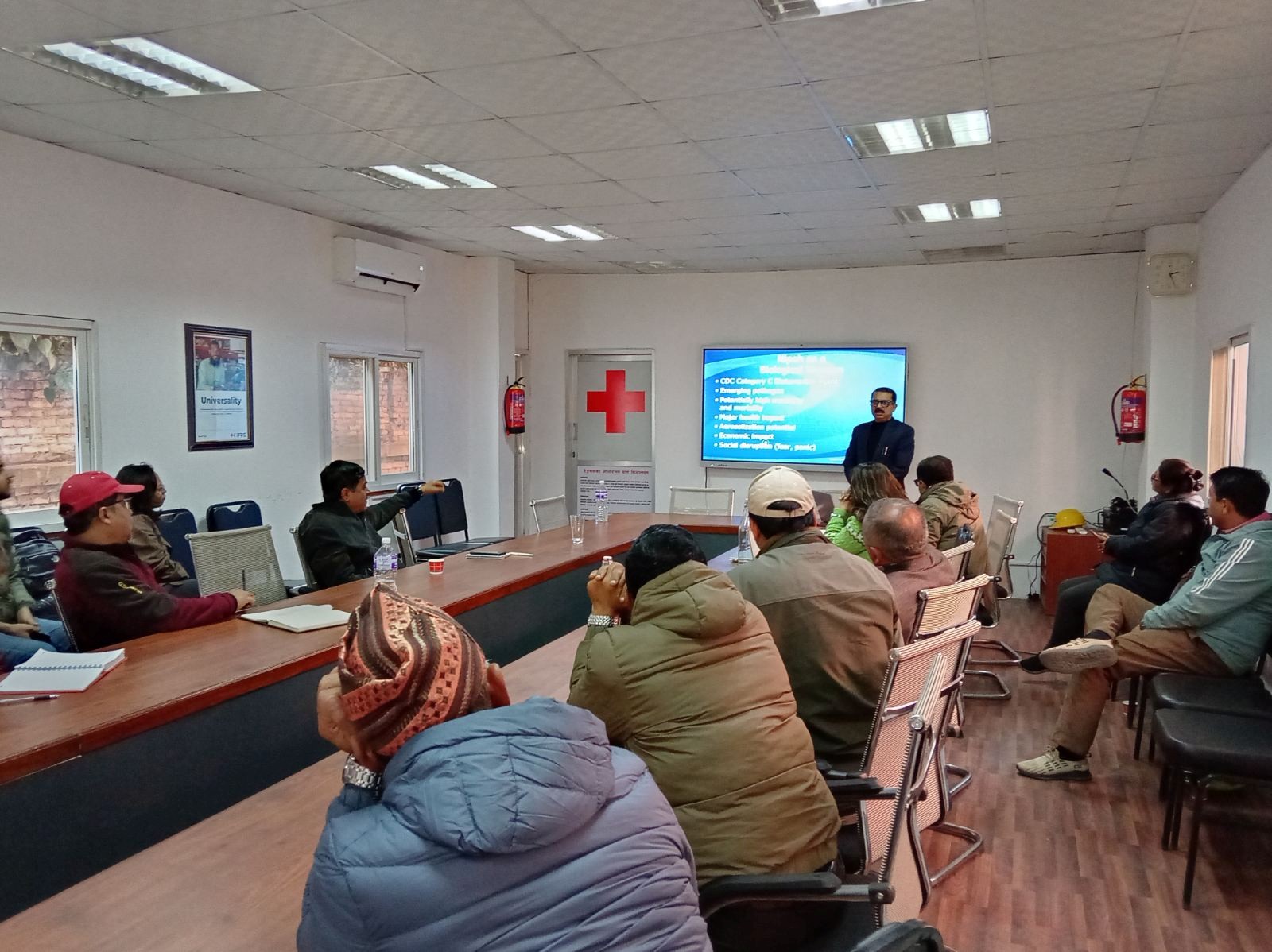Guest Lecture on Grand Bargain, Localization, and Its Significance in the Humanitarian Field

On 30 May, 2023, DPNet, in collaboration with DiMaNN, NEAR, and Samarpan Academy Institute of Crisis Management Studies (ICMS), organized a guest lecture session on the significance of the Grand Bargain, Localization and its significance in the humanitarian field. The event featured Ms. Sahida Arif, a highly experienced humanitarian and resilience expert, and Regional Representative at NEAR (Network for Empowered Aid Response).
The program was conducted in the presence of esteemed individuals including Mr. Surya Bahadur Thapa, Chairperson of DPNet/DiMaNN; Mr. Sanat Kumar Basnet, Retired Inspector General of APF Nepal and Chairperson of ICMS; Dr. Raju Thapa, Vice Chair of DPNet and Member of Board of Directors, ICMS; Mr. Bishnu Pd. Timilsena, General Secretary of DiMaNN; and Mr. Pratap Maharjan from Action Aid Nepal with the participation of 44 personalities from different organizations including ICMS. The program was moderated by Dr. Kishor Adhikari, Principal of ICMS.
The program commenced with a warm welcome and program introduction session by Dr. Kishor Adhikari, followed by an insightful presentation and sharing session from Ms. Sahida Arif. The event featured discussions on the NEAR network and the Grand Bargain initiative along with localization, both aimed at improving humanitarian aid systems and empowering local actors and communities.
During her presentation, Ms. Arif began by providing an introduction to the NEAR network, which stands for Network for Empowered Aid Response. The NEAR network is a collective of Civil Society Organisations (CSOs) from the Global South that share a common objective of promoting fair, equitable, and dignified partnerships within the aid system. The network emphasizes the importance of genuine local participation in development and disaster management to ensure effective aid reaches those in need. Ms. Arif highlighted the significant role played by local organizations in responding swiftly to crises, often saving lives in the crucial initial days of emergencies.
Additionally, Ms. Arif shed light on the Grand Bargain, an agreement that emerged from the preparations for the World Humanitarian Summit in 2016. The Grand Bargain is a unique partnership between major donors and humanitarian organizations committed to enhancing the efficiency, effectiveness, and accountability of humanitarian action while ensuring that aid reaches those in need. Ms. Arif clarifies that the Grand Bargain has evolved over the years, with the endorsement of the Framework and annexes for the Grand Bargain 2.0 in 2021.
Ms. Arif further explains that the Grand Bargain 2.0 aims to achieve better humanitarian outcomes for affected populations by prioritizing enhanced efficiency, effectiveness, and greater accountability. Two crucial priorities have been established to guide the future of the Grand Bargain: reaching a critical mass of quality funding for an effective and efficient response, and providing greater support for local responders' leadership, delivery, and capacity, as well as the participation of affected communities in addressing humanitarian needs. Originally involving the five largest donors and six largest UN agencies, the Grand Bargain now boasts 66 signatories, including member states, NGOs, UN agencies, Red Cross/Red Crescent movements, and intergovernmental organizations. In 2022, these signatories are actively implementing commitments across five workstreams, which include greater transparency, support and funding for local and national responders, joint needs assessments, participation revolution, and harmonized reporting requirements.
Ms. Arif, reflecting on past achievements and the role of workstreams within the Grand Bargain 2.0 describes that three workstreams were decided to be closed down: increasing the use and coordination of cash-based programming, reducing duplication and management costs through functional reviews, and enhancing quality funding. However, the commitment to enhance engagement between humanitarian and development actors remains a cross-cutting commitment.
In the open discussion session, participants actively engaged by raising questions related to the capabilities of local NGOs, the involvement of local actors, and mechanisms for enhancing the capacity of these organizations. Ms. Sahida Arif, provided insightful answers to address the question referring to core documents How to Implement the Grand Bargain Commitments at The Country-Level? and The Grand Bargain 2.0 Endorsed framework and annexes.
Dr. Kishor Adhikari, Principal of ICMS, summarized the session, emphasizing the significance of Ms. Arif's lecture in promoting effective humanitarian aid delivery at the local level. Dr. Adhikari expressed gratitude to Ms. Arif for her valuable insights, highlighting the crucial role played by local communities in addressing the challenges they encounter.
Concluding the session, Ms. Anita Dhakal, a student from ICMS, delivered a vote of thanks to the presenter for her enlightening session. She expressed gratitude to Ms. Arif for sharing her expertise and providing valuable insight on the topic. Ms. Dhakal also extended her appreciation to all the participants for their active participation and presence in the program.
Please find the presentation by Ms. Arif Guest Lecture on Grand Bargain, Localization, and Its Significance in the Humanitarian Field at the DPNet ORC.











